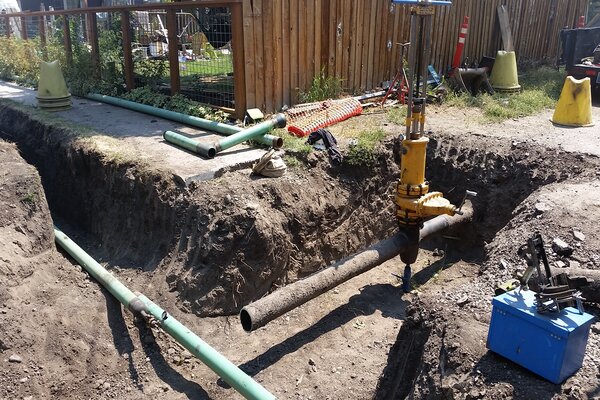Pipeline Safety
PIPELINE SAFETY
MISSION 
The mission of the Montana Public Service Commission Pipeline Safety Program is to ensure the safe construction, operation, and maintenance of intrastate gas pipelines in Montana. This is accomplished through inspection, enforcement, education, and the investigation of accidents. The primary responsibility of the program is protecting the public from the potential dangers of transporting gas by pipeline.
OPERATION
Safety inspections are conducted in the field when pipeline operators are constructing and repairing pipelines. Many inspections also are done in the file rooms and offices of pipeline operators. For every operations and maintenance task that their employees perform on the pipeline system, the operators have a corresponding written procedure and a record that documents the task. These procedures and records are routinely reviewed by the PSC inspectors to ensure compliance with rules and regulations.
The facilities that are inspected include: gas transmission pipelines that move gas cross country to our cities and towns, gas distribution mains under our streets, and service lines that ultimately deliver gas to our businesses and homes. Many above-ground facilities are also part of the ‘pipeline’ network. These include compressor stations, pressure regulating stations, and control rooms where utilities remotely monitor and operate their systems.
JURISDICTION
The Natural Gas Pipeline Safety Act of 1968 and the Hazardous Liquid Pipeline Act of 1979 gave jurisdiction over all pipeline safety in the U.S. to the Secretary of Transportation. The agency operating under the US DOT and responsible for pipeline safety is known as the Pipeline and Hazardous Materials Safety Administration (PHMSA).
Safety jurisdiction over pipelines in Montana is divided between PHMSA and the Montana PSC. The PSC has the responsibility for intra-state gas pipeline facilities – those that transport gas within the borders of the state. PHMSA has responsibility for inter-state pipelines: these are gas pipelines that cross state borders, and all liquid (crude oil or petroleum product) lines that operate within or through the state. Visit the National Pipeline Mapping System public map viewer web app to see the gas transmission and hazardous liquid pipelines in each county.
The Natural Gas Pipeline Safety Act provides that any state with laws comparable in scope and intent to the Federal Act can enter into an agreement with the federal administration to carry out safety enforcement in that state. The Montana PSC Pipeline Safety Program is a federal/state partnership with the US DOT PHMSA. Federal grants-in-aid are authorized for up to 80 percent of a state agency's personnel, equipment, and activity costs related to its pipeline safety program. The resulting federal/state partnership is the cornerstone for ensuring uniform implementation of the pipeline safety program nationwide.
RESOURCES & PIPELINE CARRIER COMPLIANCE MATERIALS
- Pipeline Carrier Annual Report Form
- Federal Rules & Regulations Governing Pipeline Safety
- State Rules & Regulations Governing Pipeline Safety
- National Pipeline Mapping System
- Find a Pipeline Operator
- Information on Siting & Routing
ANNUAL PIPELINE PRESENTATIONS
Joel TierneyProgram Manager
Pipeline Safety
Contact Us:
- (406) 444-6181
- psc_pipelinesafety@mt.gov